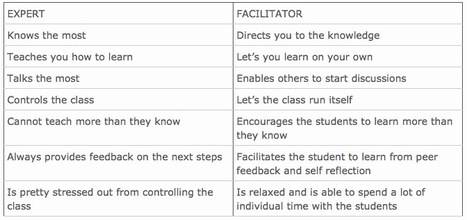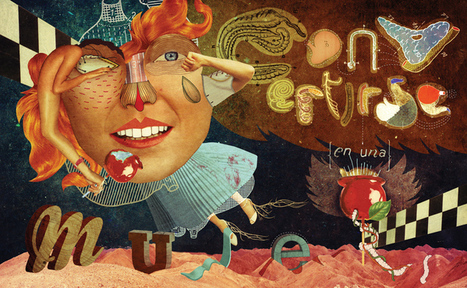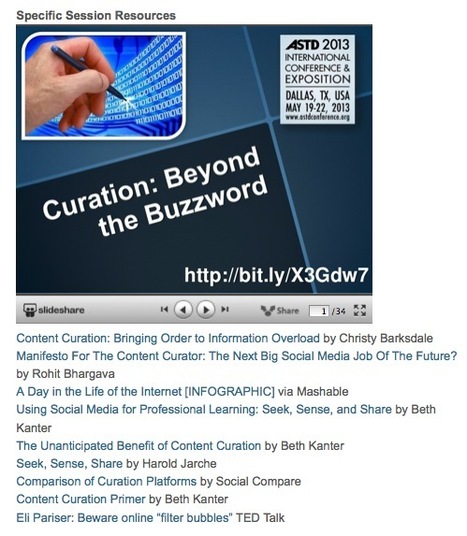Get Started for FREE
Sign up with Facebook Sign up with X
I don't have a Facebook or a X account

 Your new post is loading... Your new post is loading...
Sample Student's curator insight,
May 5, 2015 10:14 PM
We often ask our students to create annotated bibliographies, and this focuses on their capacity to evaluate and make decisions about the validity, reliability and relevance of sources they have found. using Scoop.it, we can ask them to do much the same thing, but they will publish their ideas for an audience, and will also be able to provide and use peer feedback to enhance and tighten up their thinking. This is relevant to any curriculum area. Of course it is dependent on schools being able to access any social media, but rather than thinking about what is impossible, perhaps we could start thinking about what is possible and lobbying for change.
Sample Student's curator insight,
May 5, 2015 10:18 PM
We often ask our students to create annotated bibliographies, and this focuses on their capacity to evaluate and make decisions about the validity, reliability and relevance of sources they have found. Using Scoop.it, we can ask them to do much the same thing. But they will publish their ideas for an audience, and will also be able to provide and use peer feedback to enhance and tighten up their thinking. This is relevant to any age, and any curriculum area. Of course it is dependent on schools being able to access social media. But rather than thinking about what is impossible, perhaps we should start thinking about what is possible, and lobbying for change. Could you use a Scoop.it collection as an assessment task? |

wanderingsalsero's curator insight,
May 23, 2013 8:37 PM
This is an evergreen interesting topic. I was especially intrigued with the title up above that said "Social Media Job of The Future". There might be a lot of prescience (sp?) in that choice of words. 
Dawn Adams Miller's curator insight,
May 23, 2013 11:12 PM
Anything from LnD Dave is pure hold and very practical. Enjoy' 
Susan Wegmann's curator insight,
May 24, 2013 8:51 AM
A GREAT resource for the buzzword "Content Curation." Finally! |













¿Quién es quién?
An expert always provides feedback on the next steps....
A facilitator... facilitates the student to learn from peer feedback and self reflection
focus on chart. The other ideas are the ones we've been dealing with for...ten years?
Nire iritziz taula da interesgarriena. Gainerako ideiek +10 urte? dauzkate.